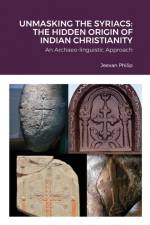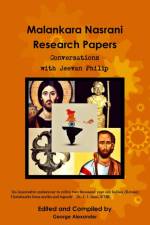av Jeevan Philip
385,-
An Archaeo-linguistic Perspective on the Origins of Indian ChristianityIf you want to discover the hidden origin of Indian Christianity, then keep reading .....This is an archaeo-linguistic study of the origin of Indian Christianity, especially the Syriac Christianity of South India. This is most likely the first time archaeological evidence from Afro-Eurasian trade routes has been analysed and compared to determine the possible migration of Christianity to South Asia and its connections with early Christianity. The claims of the churches and respective church historians were scrutinised based on material evidence (archaeological) and cross-checking with canonical, hagiographic, and other Gnostic literature. The result may question conventional historical narratives and popular beliefs. Modern scientific studies like linguistics, ceramics, semiotics, numismatics, genetics, codicology, etc. are used in this book to verify the results.Important study subjects include:· Indian Christianity and its apostolic origin as claimed by different churches and their historians · The historical facts about the Martyrdom of apostle Thomas at Mylapore, Chennai, South India based on material evidence, travellers' records, and other parallel and alternative evidence· Any historical evidence of first-century Christianity in India other than hagiographies· Facts about the Persian/Pahlavi crosses of South India, their structure, semiotic explanations and historical ownership · The comparative study of different translations of Pahlavi inscriptions on the stone structures (crosses) of South India by epigraphists and other scholars, including the latest one by Shilanand Hemraj (2014)· Comparative analysis of archaeological materials unearthed from ancient socio-commercial networks along the Afro-Eurasian trade routes against those found in India· Historical facts about the hypothesis of fourth-century subjugation of Indian Christianity by Persian Christianity put forward by church historians, especially Syriac church historians · The historical crucifixion of Jesus and the instrument used for the punishment based on material evidence vis- à -vis the biblical and other literary evidence· Tracing the archaeological evidence of eastern Christianity in the Sasanian Empire, Central Asia, China, and India · The origin of Indian Christianity and its possible Manichaean Connection based on archaeological and literary evidence from the Persian Empire, Central Asia, China, and India Finally, an answer to an old historical problem-the question of the origin of Indian Christianity-a first-century apostolic one or a later-day transfer through Afro-Eurasian socio-commercial networks-is provided. A worthwhile read for both Christians and non-Christians.


